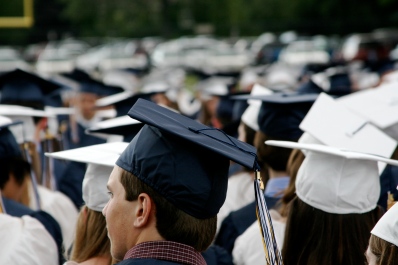By Laura Sanicola

The Economist ranked Fordham 1,166th in its first college ranking. Courtesy of Flickr.
Fordham placed 1,166th out of 1,275 universities in a ranking of U.S. colleges and universities released by The Economist in late October.
The rankings, which were the first-ever released by the magazine, were derived from “a simple, if debatable, premise: the economic value of a university is equal to the gap between how much money its students subsequently earn, and how much they might have made had they studied elsewhere.”
It places Fordham in the eighth percentile with expected earnings of $59,931 and actual earnings of $55,400, a devaluation of $4,531.
The rankings compare the estimated salary of a college’s current students to the real salaries of alumni that share certain characteristics. Fordham placed far behind several of the nation’s Catholic universities, including University of Notre Dame (193), Georgetown University (16) and Boston College (587). However, it placed 104 places above Yale University (1,270).
In an official statement, Fordham University denounced the methodology used by the magazine in its rankings.
“The Economist introduces curious proxies for elements that lack data and omit important considerations, all of which invalidate the effort,” said Bob Howe, senior director of communications at Fordham.
Fordham’s Office of Career Services did not respond to requests for comment.
The Economist created the ranking system using data from the federal government’s new “College Scorecard” website, which aggregates statistics regarding a school’s average cost, graduation rate and graduates’ salaries.
In contrast, the Brookings Institute, a think-tank in Washington, published its own ‘value-added’ rankings using the scorecard data on Oct. 29, the same day The Economist released its rankings. Brookings’ approach differed in numerous ways, including that it used different variables, encompassed a much larger group of universities (including two-year colleges and vocational schools) and regarded a college’s curriculum as a significant part of its “value added,” ranking engineering schools much higher than liberal arts schools. In these rankings, Fordham placed 84th with a 17.5 percent value added.
A post in The Economist accompanying the rankings noted that limitations included the fact that the rankings only included individuals who applied for federal financial aid, which restricts the sample to “a highly unrepresentative subset of students that leaves out the children of most well-off parents.” Furthermore, the database used only tracks students’ salaries for ten years after they start college, which The Economist acknowledged cuts off a students’ trajectories at a point in their life when potentially high earners are still in graduate school and therefore are not included in the sample of incomes.
Janis Barry, an associate professor of economics at Fordham, is not convinced that that the gap measure is able to provide any useful analysis for understanding a university’s true economic value.
“As was pointed out in the article, it is very hard to disentangle the impact of individual ability and merit, from the ‘added-value’ provided by the university and its staff, facilities and general environment,” Barry said. “The negative gap evidenced in Fordham’s ranking may be influenced by many factors.”
For example, Barry noted that the creators of the rankings emphasized that they heavily weight SAT scores in their model.
Barry also found that the rankings may not take into account the locational disadvantages of attending a university in New York City. “It is possible that given the very high salaries found in NYC, where Fordham is located, the expected versus real median income for Fordham students does fall short,” Barry said. “After controlling for students location preferences, the findings show that both Columbia University and NYU ‘underperform’ in terms of the earnings gap.”
In the post, The Economist acknowledged that maximizing earnings is probably not the primary goal of college.
“You could easily argue that ‘underperforming’ universities…are actually making a far greater contribution to American society than overperformers like Washington & Lee, if they tend to channel their supremely talented graduates towards public service rather than Wall Street,” the post continued.
Jeffrey Coltin, FCRH ‘15, an editorial assistant at City & State magazine, shared this sentiment, remarking that students “should be proud of its dismal, near-bottom ranking.”
“It could mean students who attend Fordham are moved to take less financially-lucrative careers than they would have if they had attended another college, such as politics, social work and journalism,” he added.
